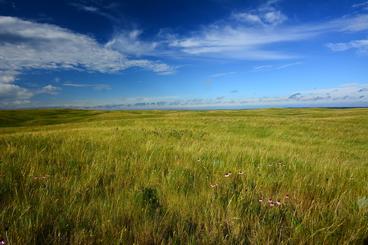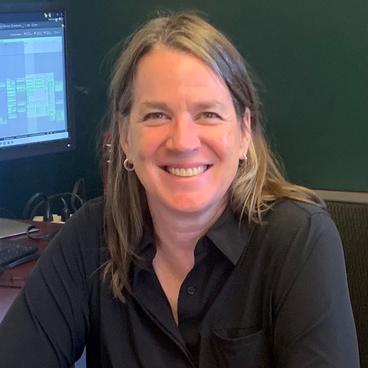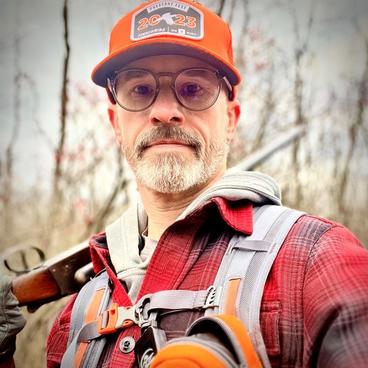
Grasslands provide important ecosystem services in our region and beyond, such as critical habitat, erosion control, and carbon sequestration. However, by some estimates grasslands are the most imperiled and least protected natural ecosystem in the world, which is predominantly due to widespread conversion of grasslands into agricultural land. Increasingly, climate change acts as an additional stressor which complicates efforts to restore and conserve these key ecosystems.
On Monday, February 26 from 12-1pm CT, join the Midwest Climate Adaptation Center for a discussion around climate-smart strategies for grassland management. This Science Seminar will feature a discussion between Melinda Smith of Colorado State University, a plant community ecologist, and Brent Rudolph of Pheasants Forever and Quail Forever, who develops collaborative grassland and farmland conservation programs.
Speakers:
 Melinda Smith Melinda is a plant community ecologist interested in understanding patterns, determinants, and dynamics of diversity and species abundance and how these relate to ecosystem function. Her research focuses exclusively on grassland ecosystems, in particular the shortgrass steppe, mixedgrass and tallgrass prairies in the Central Great Plains of the U.S, but she also works with collaborators in grasslands in South Africa and Inner Mongolia China. Mendy is the leader of the Drought-Net RCN and the International Drought Experiment—a network of more than 140 sites across the globe examining the impacts of extreme drought on terrestrial ecosystems. |
 Brent Rudolph Brent Rudolph is the Director of Sustainability Partnerships for Pheasants Forever and Quail Forever (PF&QF). He develops collaborative grassland and farmland conservation programs to leverage PF&QF habitat creation efforts to help meet environmental, social, and economic sustainability goals of partners and donors. Brent has a Ph.D. in Human Dimensions of Fisheries and Wildlife from MSU, a M.S. in Environmental and Forest Biology from the SUNY College of Environmental Science and Forestry, and a B.S. in Biology from Ohio Northern University. He also holds an appointment as Adjunct Assistant Professor in the Michigan State University Department of Fisheries and Wildlife. |
This webinar is part of the MW CASC's Spring Seminar series.
